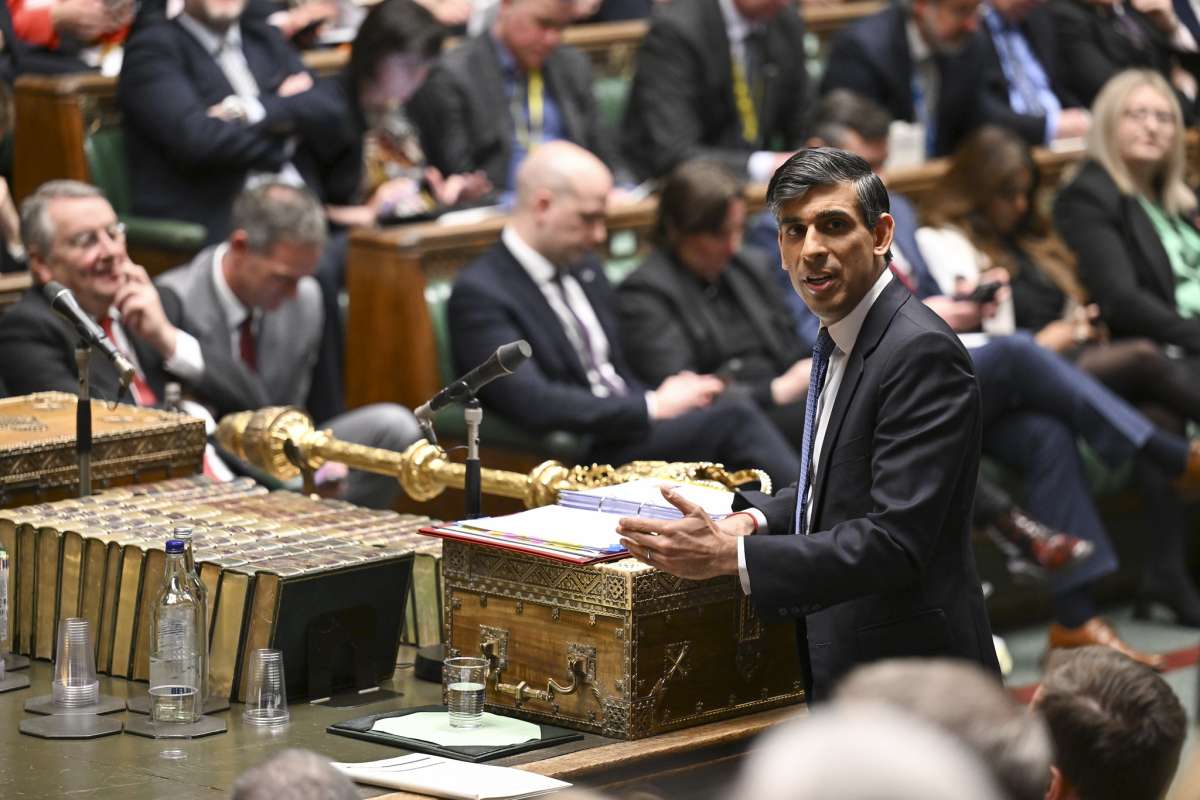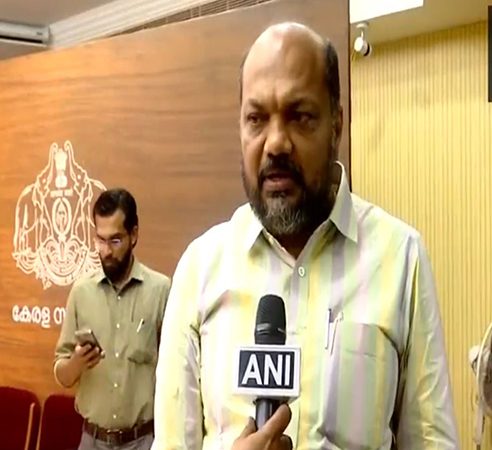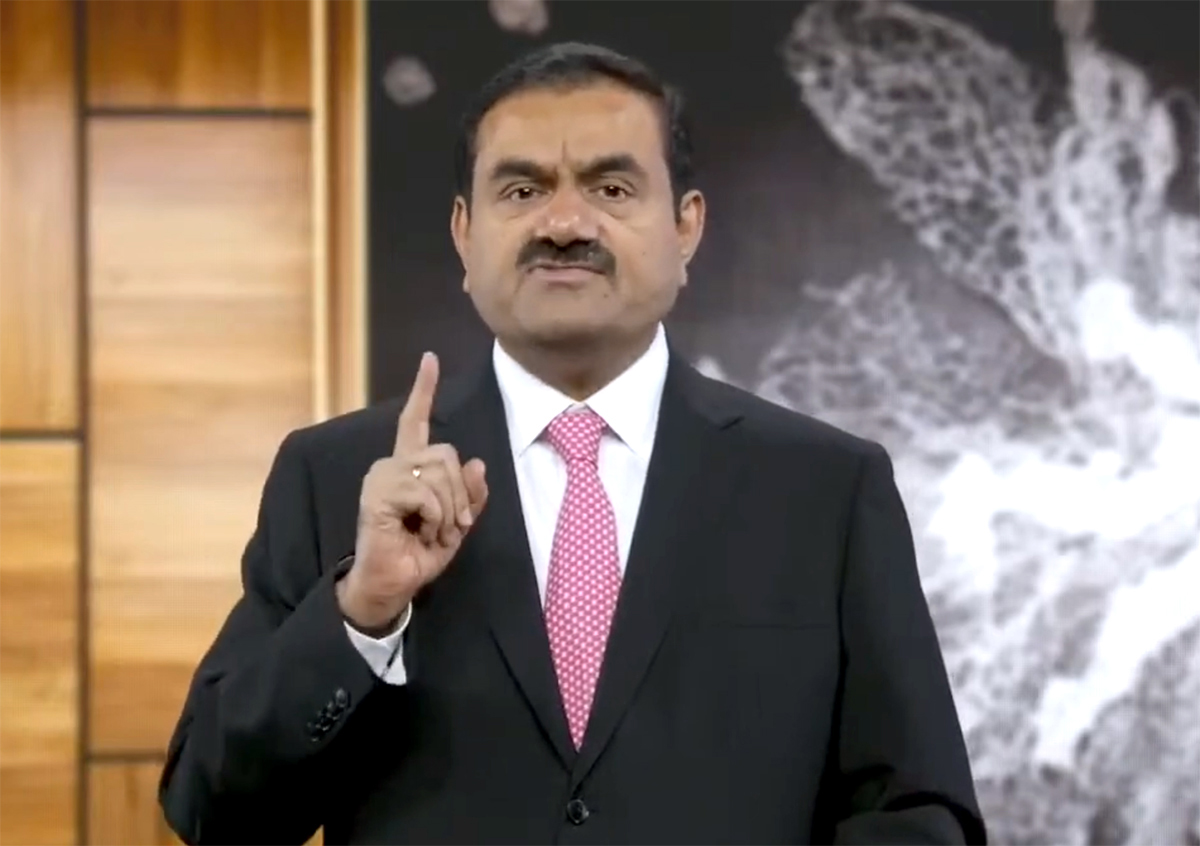The new definition states that extremism “is the promotion or advancement of an ideology based on violence, hatred or intolerance,” that aims to destroy fundamental rights and freedoms; or undermine or replace liberal parliamentary democracy…reports Asian Lite News
Britain unveiled a new definition of extremism on Thursday in response to an eruption of hate crimes against Jews and Muslims since the Oct. 7 Hamas attacks on Israel, although critics said the change risked infringing on freedom of speech.
Earlier this month, Prime Minister Rishi Sunak warned that Britain’s multi-ethnic democracy was being deliberately undermined by both Islamist and far-right extremists, and more needed to be done to tackle the problem.
Antisemitic incidents rose by 147 percent in 2023 to record levels, fueled by the Oct. 7 attacks, according to Community Security Trust, a Jewish safety watchdog. Tell Mama, a group which monitors anti-Muslim incidents, said last month that anti-Muslim hate crimes also had grown by 335 percent since the attacks.
“Today’s measures will ensure that government does not inadvertently provide a platform to those setting out to subvert democracy and deny other people’s fundamental rights,” said Michael Gove, the communities minister who heads the department that produced the new extremism definition.
“This is the first in a series of measures to tackle extremism and protect our democracy,” Gove said.
The new definition states that extremism “is the promotion or advancement of an ideology based on violence, hatred or intolerance,” that aims to destroy fundamental rights and freedoms; or undermine or replace the UK’s liberal parliamentary democracy; or intentionally create an environment for others to achieve those results.
Britain already bans groups that it says are involved in terrorism, and supporting or being a member of these organizations is a criminal offense. The militant Palestinian group Hamas is among the 80 international organizations that are banned.
Groups that will be identified as extremist following a “robust” assessment over the next few weeks will not be subject to any action under criminal laws and will still be permitted to hold demonstrations.
But the government will not provide them with any funding or any other form of engagement. Currently, no groups have been officially defined as extremist using the former definition which has been in place since 2011.
Gove said in an interview on Sunday that some recent large-scale pro-Palestinian marches in central London had been organized by “extremist organizations,” and people might choose not to support such protests if they knew they were giving credence to those groups.
Even before the new definition was announced, critics warned it could be counter-productive.
“The problem with a top-down definition of extremism is that it catches people who (we) don’t want to catch,” said Archbishop of Canterbury Justin Welby, the spiritual head of the Anglican Communion.
“It may accidentally inhibit what we have very preciously in this country, an extraordinarily robust freedom of speech and ability to disagree strongly,” Welby told BBC Radio on Wednesday.
More than 50 survivors or relatives of victims of Islamist attacks in Britain have also signed a letter accusing some politicians of playing into the hands of militants by “equating being Muslim with being an extremist.”
‘Youngest Muslim MP biggest target of online hate’
The youngest Muslim MP ever elected in the UK has become the biggest parliamentary target of online hate after speaking out on Palestinian rights in the wake of the Gaza war, Sky News reported on Wednesday.
Zarah Sultana, 30, was first elected MP for Coventry South in the 2019 general election. Born to a Pakistani Muslim family in Birmingham, the Labour MP has a large online following on social media, which she described as a “crucial part of the job.”
But Sultana’s activity and commentary in the wake of Israel’s invasion of Gaza has seen her become a target of online abuse.
According to parliamentary records for this year, she has become the “most at-risk MP online.”
Amid growing concerns over the safety of elected officials in the UK, and following the killings of two MPs in the span of a decade, Sultana now follows strict security measures.
The MP “logs the date, location and time” of every event she attends in order to notify parliamentary security teams about potential dangers.
But Sultana told Sky News that online hate has posed the biggest concern since late last year, when she “started talking about Palestinian rights.”
On a daily basis, she receives messages calling for her deportation and telling her to “go home to Pakistan.”
One message seen by Sky News said: “Send that b***h to Palestine they are low on targets.”
Sultana said she avoids public transport due to the threats, and is always accompanied by aides or security on any public visit.
Door-knocking also poses risks, with Sultana saying there have been conversations “where she’s not been completely sure she was on solid ground in terms of her safety.”
Parliamentary authorities say greater measures are being taken to protect the safety of MPs. Security Minister Tom Tugendhat has said MPs at greater risk of violence are entitled to increased safety measures, including private cars that have been given to some female MPs.
A spokesperson for the House of Commons said: “The ability for members and their staff to perform their parliamentary duties safely both on and off the estate is fundamental to our democracy.
ALSO READ-Sunak warned not to deport Afghan allies to Rwanda









